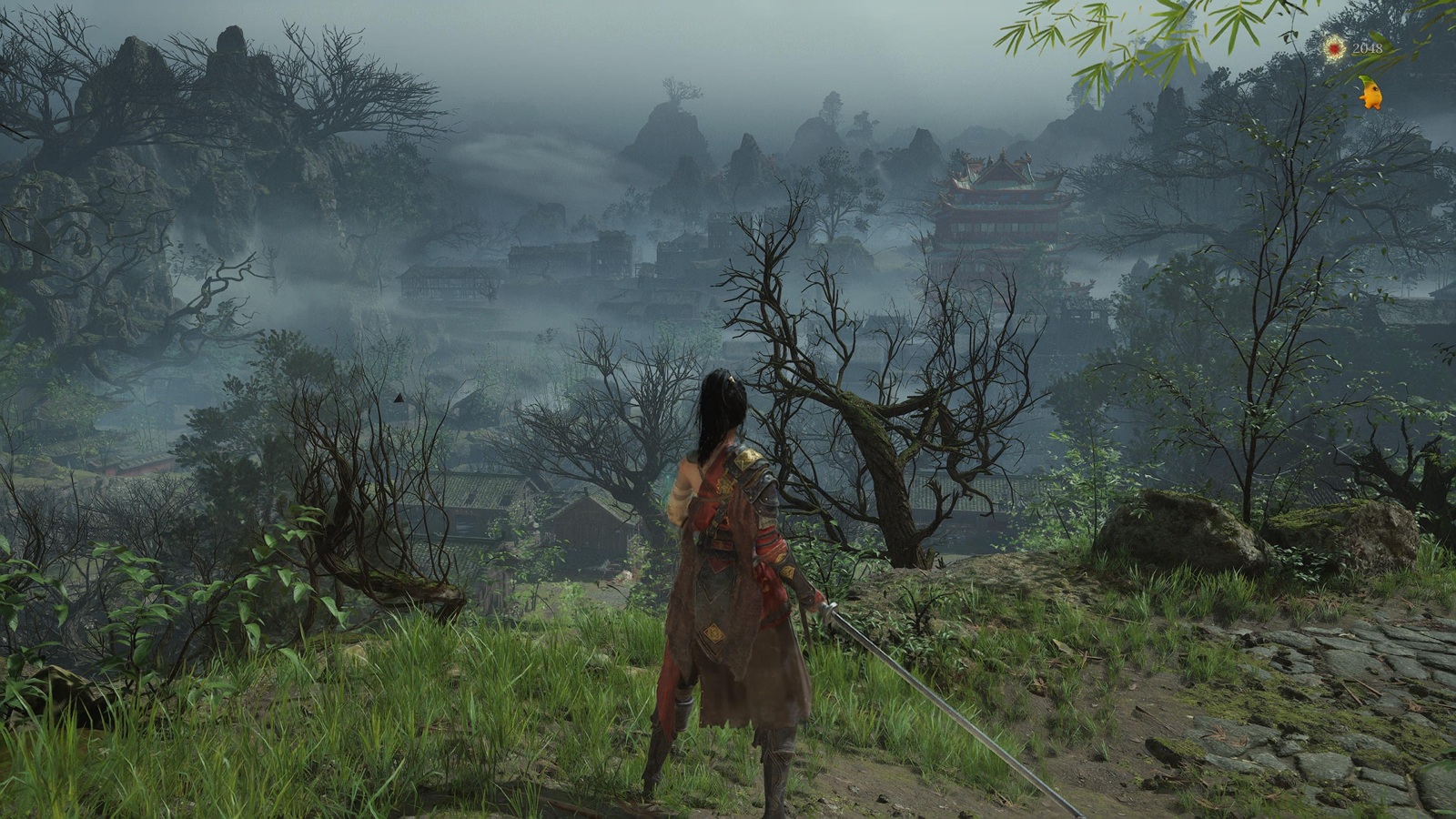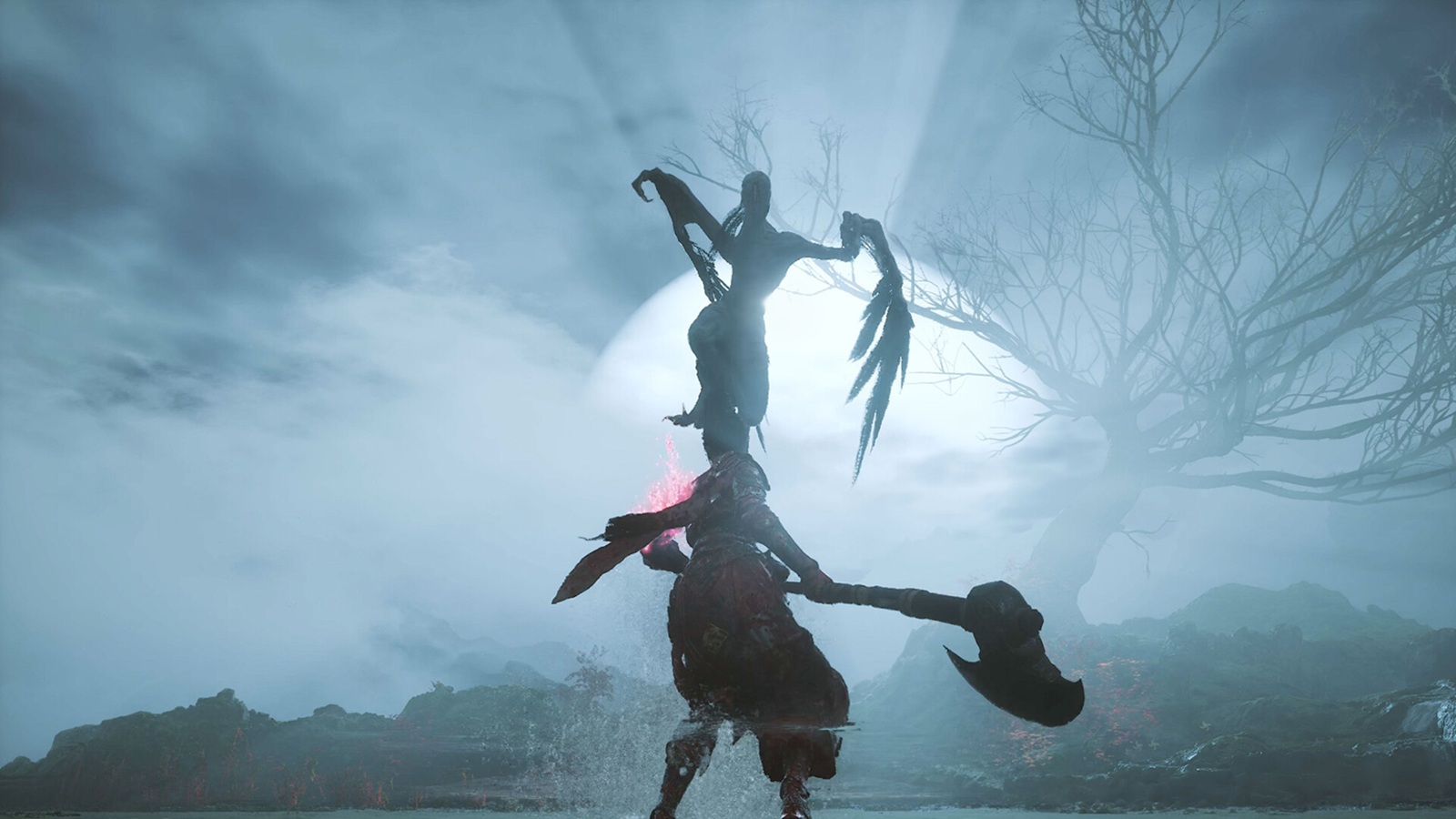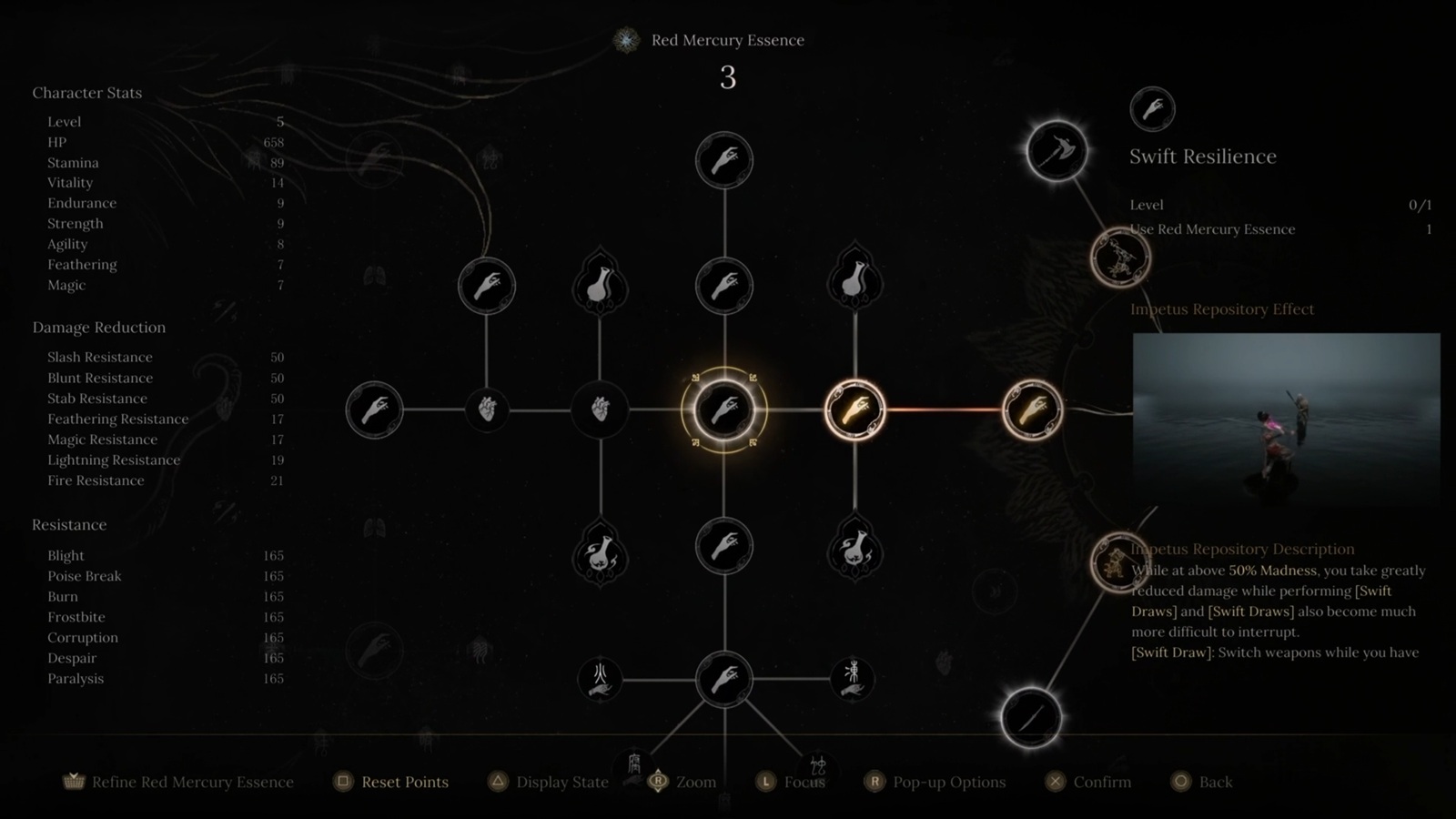
In this season, a newcomer to the gaming world, Leenzee from Chengdu, is entering the fray of games similar to the Soulslike genre with their debut title, Wuchang: Fallen Feathers. This Soulslike game transports us into an ancient China that’s purely fictional and steeped in folklore and mythology, but it also offers unique twists on the formula that sets it apart as a distinct action-RPG experience.
A feathery curse
In Wuchang: Fallen Feathers, players embark on an imaginative journey through the realms of Shu towards the conclusion of the Ming Dynasty. Assuming the persona of Wuchang, a female pirate warrior under a peculiar enchantment, you’ll navigate a world plagued by warring factions and a fearsome, cannibalistic creature that leaves its victims with a malady called Feathering. Those affected sprout spectral feathers, lose their recollections, humanity, and eventually transform into monsters themselves. At the outset of the game, Wuchang possesses feathers on her arm and has lost her memories. The escalating curse presents her main challenge, but it also bestows upon her a power she employs to vanquish adversaries and seek a solution to save herself and others from the Feathering’s grasp.
What makes Wuchang: Fallen Feathers shine is its stunning visuals and thrilling gameplay. The places you journey through showcase an array of ancient temples, forests, mountains, towns, castles, mines, and other landscapes, making it feel vast and immersive. The game offers several routes at various points in the story, leaving you with plenty of choices to make, some of which can lead to hidden treasures or new expansive areas, adding a sense of adventure and excitement to your journey. Furthermore, I often paused just to appreciate the beautiful landscapes that Leenzee meticulously designed for us to explore.

The game’s combat and adversary design is impressive, offering a stunning and fluid demonstration of offense and defense as you annihilate your adversaries with an array of weapons and spells. These adversaries range from common humans to truly grotesque monsters with menacing characteristics and aggressive attacks. However, I found some of the human character models less appealing. In regular gameplay, many of these characters suffer from a “doll-like” appearance, especially when the camera is facing Wuchang, who sometimes stares blankly at the screen with an unresponsive expression. This can be unsettling, but it’s usually not noticeable due to the fast-paced action. However, I also noticed that some defeated human enemies had odd, exaggerated expressions that appeared goofy. This doesn’t significantly detract from a game focused on quick action, but it’s worth mentioning.
Deliver judgement & save yourself

In Wuchang, gameplay closely follows the Soulslike genre’s pattern. Initially, players are equipped with basic gear – a sword, a backpack full of armor, and a reusable health potion. They traverse the lands of Shu, battling progressively tougher enemies and warriors, while also encountering reasonable inhabitants who offer tasks with rewards upon completion. As you delve deeper and uncover new paths, both optional and essential routes become available.
Upon death, players are sent back to a sanctuary shrine and lose some of their currency (red mercury in this game). However, an intriguing twist is that each demise increases your madness. Once the madness reaches a certain level, it boosts your damage output and vulnerability, forcing you to confront a spectral adversary to retrieve your dropped currency if the madness becomes unmanageable. Defeating this specter resets your madness, and I found this process more engaging compared to the standard loot-and-collect system in other games.
One delightful aspect of Wuchang that adds to its enjoyment lies in the assortment of weapons and gear hidden along various paths. The game offers diverse categories of weaponry, such as the powerful longsword and axe for heavy attacks, agile dual swords, elongated spears, and a magic-infused one-handed sword for long reach. Each weapon allows Wuchang to execute light attacks, heavy attacks, charged heavy attacks, a shared discipline move, and a unique skill. What intrigues me is the lack of a universal block or parry mechanism. Instead, axe weapons have a block as their discipline move, while certain moves eventually unlock a parry as a special ability. However, evasion often serves as the most effective defense in the game.

The distinct abilities of weapons make them remarkable, as they offer significant variations even within the same weapon category. To illustrate, the initial spear you acquire possesses a charging attack ending in an icy detonation, but another spear allows you to elongate the blade with chains and unleash a flurry of fire during its skill. You can enhance your combat style by incorporating Benediction mods and Acupuncture needles. The mods can be inserted into weapons to provide special effects like healing upon enemy defeat, and the needles grant you an activatable boost that amplifies various aspects of your equipment, such as enhancing spell damage or the potency of debuffs like frostbite and burn. Additionally, you’ll find a skill tree offering buffs for each weapon class or general buffs for Wuchang herself. The ability to freely rearrange this skill tree means there is ample opportunity for exploration and discovering an approach that suits your playstyle.
In this game, an intriguing twist on the Soulslike genre is the Skyborn Might system. Instead of a magic meter, this system employs accumulated Skyborn Might points for most of your magical spells and weapon skills. Certain spells and abilities require Skyborn Might points to activate, while others enhance when you have these points. Initially, you start with one point capacity, but it quickly increases to three, and further upgrades allow for stronger attacks. The simplest method to acquire Skyborn Might points is by dodging enemy attacks at the last moment, though weapon classes also boast enhancements such as completing a basic combo to earn a Skyborn Might point. This system encourages risk-taking to unleash Wuchang’s most potent attacks, and it feels exhilarating when you master the rhythm of offense and defense. On the other hand, if you’re not careful and let your Skyborn Might points dwindle, you can easily be overwhelmed and defeated, thereby increasing the game’s difficulty level.
In this game, the opponents are well-designed and foster the variety in combat and experimentation I previously mentioned. I’ve noticed that the bosses and larger enemies provide challenging encounters that gradually escalate in difficulty. However, there were moments when I found the feedback in the game lacking. It seems like most enemies absorb your attacks without any discernible reaction to being struck, which is acceptable for large enemies but feels a bit absurd against small bandits who can seemingly cut through a barrage of spear stabs. This issue wouldn’t have bothered me as much if there weren’t so many effective offensive options, but it was still quite noticeable and often left me feeling slightly let down because the impact of hits doesn’t seem to align with the rest of Wuchang’s combat system.
Break the curse, or embrace its power
In Wuchang, there were numerous routes to navigate, and the NPCs frequently offered me choices that I could choose to decline or respond to in various manners. Additionally, the variety of weapons and equipment available made me feel assured I could replay the game and explore a distinct course for my quest compared to this review. The character models aren’t always visually appealing, and the fighting experience wasn’t consistently up to par, but it presents an intriguing twist on the Soulslike action-RPG genre, offering enough exclusive aspects that it seems worth tackling the challenge.
The content of this review was derived from a PlayStation 5 game provided by the publisher. The video game “Wuchang: Fallen Feathers” will be available for PC, PS5, Xbox Series X/S, and Game Pass starting July 24, 2025.
Read More
- Epic Games Store Free Games for November 6 Are Great for the Busy Holiday Season
- EUR USD PREDICTION
- Battlefield 6 Open Beta Anti-Cheat Has Weird Issue on PC
- How to Unlock & Upgrade Hobbies in Heartopia
- Sony Shuts Down PlayStation Stars Loyalty Program
- The Mandalorian & Grogu Hits A Worrying Star Wars Snag Ahead Of Its Release
- ARC Raiders Player Loses 100k Worth of Items in the Worst Possible Way
- Unveiling the Eye Patch Pirate: Oda’s Big Reveal in One Piece’s Elbaf Arc!
- TRX PREDICTION. TRX cryptocurrency
- INR RUB PREDICTION
2025-07-23 04:58